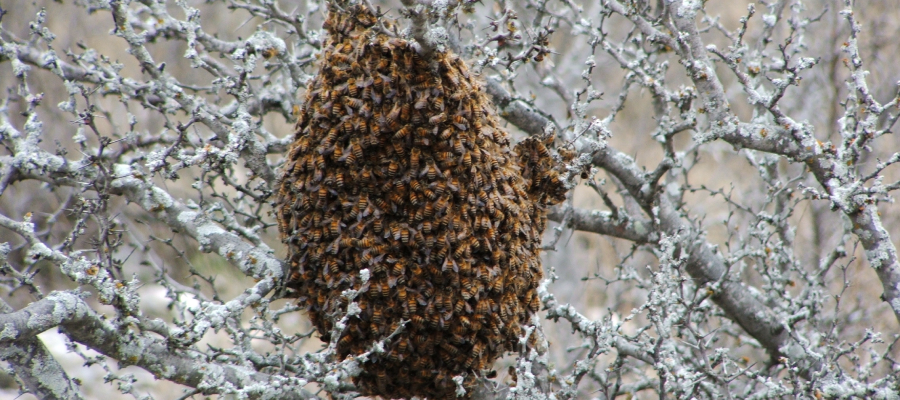We all know bees are in abundance during the spring and summer months. They even remain active—and potentially aggressive—during the fall as their resources begin to dwindle. But what happens to them in the wintertime? Here in Bristol TN, we experience our fair share of winter weather. Needless to say, it’s hard to imagine bees and other insects surviving through these colder months. Although not all bees hibernate, there are some species that can remain dormant and wait out the winter season. The experts at Leo’s Pest Control are here to share everything you need to know about wintertime bee activity.
Hibernating Bees
After their activity peaks, some bee species disappear in late summer or early fall. Bees are less likely to be active when the temperature drops below 50°F. Each of our region’s three most common bee species responds differently to cold temperatures:
- Honey bees: For honey bees to survive the winter, they must have a robust population with a secure hive and a large store of honey. Male honey bees die off, leaving the female bees to crowd tightly together in their hive with the queen in the middle. The female worker bees will vibrate and shiver around the queen bee, keeping alive until warmer days return.
- Bumblebees: All bumblebees in a colony except the queen will die if temperatures become too cold. The queen bees will hibernate, or overwinter, by digging small holes in the dirt.
- Carpenter bees: These wood-destroying bees can remain dormant through the winter in their nests. During the winter months, young carpenter bees that hatched in the summer will hibernate in their nests. During the summer, older bees will die after larvae are laid.
How to Prevent Bees Year-Round
You don’t have to worry about an infestation during the winter, but it’s a great time to start preparing for the coming months. To protect your yard from bees in the spring, take these steps:
- Seal cracks and crevices around the exterior of your house to prevent pests from entering.
- Garden far from your house or grow grasses and non-flowering shrubs.
- Regularly mow your lawn and prevent overgrowth.
- Fit your windows and doors with tight-fitting screens.
- Fill in holes left by animals to eliminate nesting spots for bees and other wasps.
- Make sure outdoor trash and recycling cans have tight-fitting lids.
Looking For Safe Bee Control in Bristol TN?
If you have bee problems at any time of year, you should contact your local bee control expert. We will identify potential nesting sites around your property or areas where stinging insects might overwinter. As spring and summer approach, we can also prepare you for pests. Contact us today to get started!

